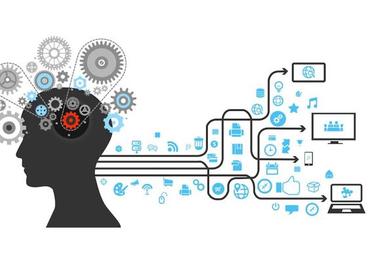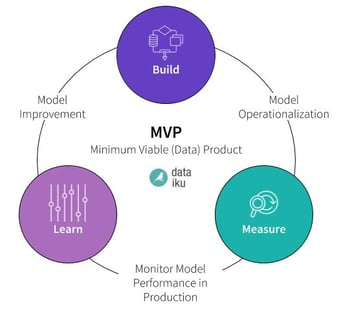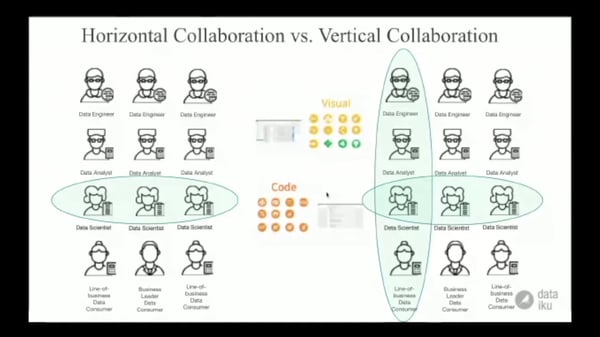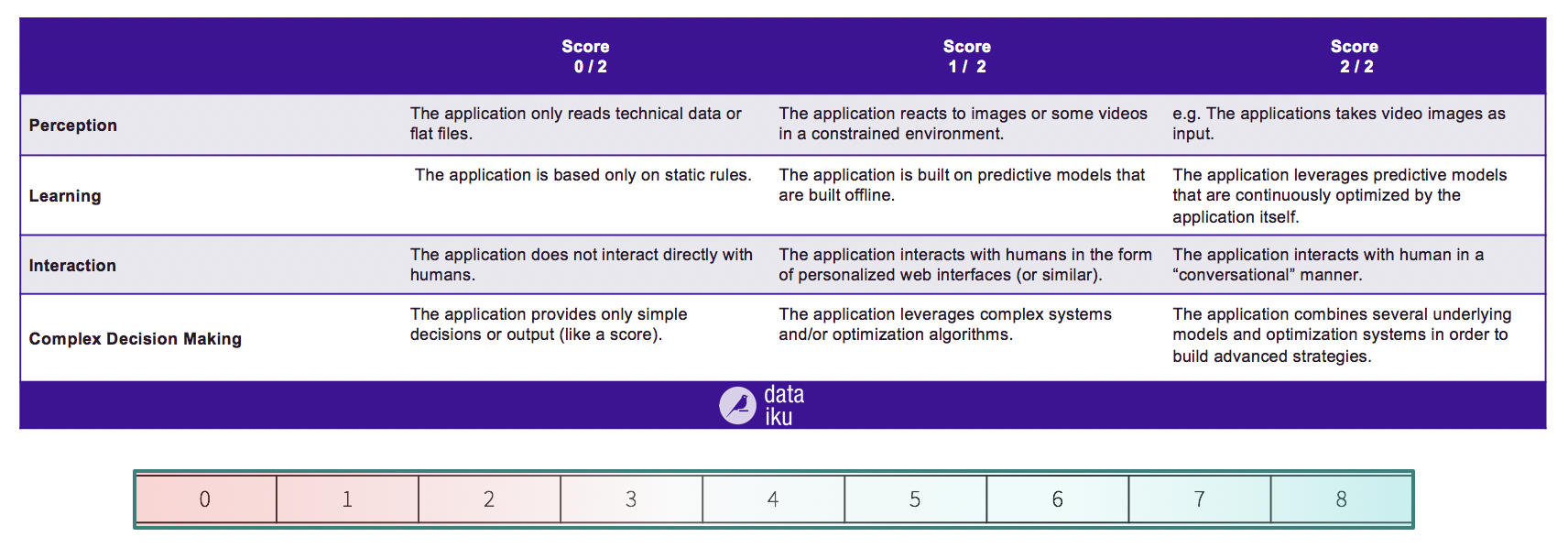In early November, Dataiku CEO Florian Douetteau was a guest on BrightTALK’s Ask the Expert series, discussing The Future of Artificial Intelligence, including where exactly we are now and what’s to come in the field. The video of the talk is available here, or read on - this post also features top excerpts and highlights.
On AI in the Enterprise
Florian Douetteau (FD): It’s very easy to grasp what AI can be for the consumer, because when you're talking AI for the consumer, we are thinking about new devices, new physical objects that are very different from the objects that we use on a daily basis. We are talking about Alexa, we are talking about self-driving cars, new ways to interact with our environment. The artificial intelligence or robotics part of AI is easy to grasp.
But the reality is probably that most of the impact of AI on the world will actually be within the enterprise, the things that are less shiny, which are business processes and how AI changes on a daily basis, how you actually work within your company. Meaning how you actually process your email, how you interact with customers, how you take decisions, and overall the organization is running it.
And the fact is that probably most of the business processes that you have today, like handling a customer complaint, will be in the next five to 10 years transformed to AI. Meaning that part of the whole process will be managed automatically, as opposed to being managed manually, meaning with a human in the loop. And that's kind of the real revolution here.

Enterprise AI, Data Science, and Machine Learning: What’s the Difference?
FD: Enterprise AI can be disconcerting because to some extent we are talking about things, ideas, that have been floating around for decades. For instance, applying machine learning or statistical techniques to automatically detect fraud in financial services in something that people have been doing since the early 80s if not the 70s.
Data science itself is just a evolution in a sense of those techniques. I guess some breakthrough in Enterprise AI is that you add specific capabilities on top of classical machine learning of statistical techniques in order to actually fully automate the decision process.
And I would say that there are probably three key characteristics to actually have a full AI within an organization:
- One is that you want your automated system to actually perceive and look at data the way humans look at data, meaning for instance being able to detect or take a decision based on a physical letter that you can scan and act on this as the human eye would act upon it.
- You want your AI to be able to interact with other systems or with humans in a very deliberate manner, so interaction, but meaning you don't just want to build systems that are a new app or a new web interface or a web application. You want a system that can interact with guests, have a conversation with other humans.
- You want your AI to actually be goal seeking and optimize or something, which is about having strategic decision making. It's not just about forecasting, whether the thing looks like or does not look like a fraud. You want your AI to actually take a decision and act upon it, trying to actually automate or even beat this goal, which could be minimizing the time you spend on fraud while also detecting most of the fraudulent acts.
And so those three components (perceiving real data, interacting for real, and adding a strategic mindset) are the differences between classical machine learning and artificial intelligence.
Author's note: Check out the scorecard: AI or not AI for a definitive answer on whether or not what you're doing is AI.
Who Is Really Doing Enterprise AI Today
FD: As any question regarding the maturity of an ecosystem, you've got always two sides of a coin. You could say that most of the businesses are looking forward to using more Enterprise AI. But on the other hand, only a few are actually there today.
A very ambitious and advanced form of Enterprise AI would be a view where you have a systematic perspective on the AI within the organization, meaning a complete understanding of what is automated and what is manual as well as a global system that would help you coordinate all those subsystems within the organization.
Imagine, say, a customer interaction within an organization. Today, you have lots and lots of different software, including CRMs, marketing software, content engineer software, etc., to help you understand it all - who are the good customers, what are the good leads, which can you use and leverage in order to get things done.
But today, all the software are very disconnected. And so the jump to AI is actually developing the automation where an organization has an automated system that strives to actually fill that gap. End to end in this case, that would be something that tries to optimize the life of a customer, the entire chain of a customer within the organization. And so, we are still far from that ideal, realistically speaking.
How Can Businesses Get Started?
FD: The challenge of AI is that it you shouldn't try to compare yourself immediately to Google or Facebook or Tesla as an organization- you could get scared. You won't immediately start building self-driving cars (or the equivalent for your business). So there is a step-by-step approach where it's not just about starting small for the benefits of starting small, but understanding that there are some initiatives with IOT where you can implement more advanced techniques to get fast results.

Focus is important to get started as well. What I've seen failing over and over again is the approach of choosing AI for side projects. Saying “Oh, maybe we would like to launch a new (AI) product, like new sideshow for the company. Maybe we could use that as a lab for AI.”
If you start AI with this kind of mindset, maybe you will learn something about yourself or about AI, but it's very unlikely that you will actually stop on something pivotal for the company. So I think that a good step is actually to focus on, and understand, the key problems with the company that it wants to solve, and apply AI on this as the first topic.
What Dataiku Brings to the Mix
FD: At Dataiku, we have a strong belief in what I call an inclusive approach to Enterprise AI (as opposed to an elite approach to Enterprise AI). One way to do AI is to have on one side of your company very talented technologists, big data centers and so on, that are building and imagining new products, and then you've got the business side of the company that is driving that, pushing that to the market and so on.
This approach seems to make sense. But I think that in most organizations, you actually need to take a more inclusive approach to this where, side by side, business-minded people in the organization work with technologists within the organization. They stop and listen to what AI can mean for the organization, start working on first projects and just get better at the data, the objective, what's doable and what's not, and enable themselves and one another get there and gain new skills along the way.







